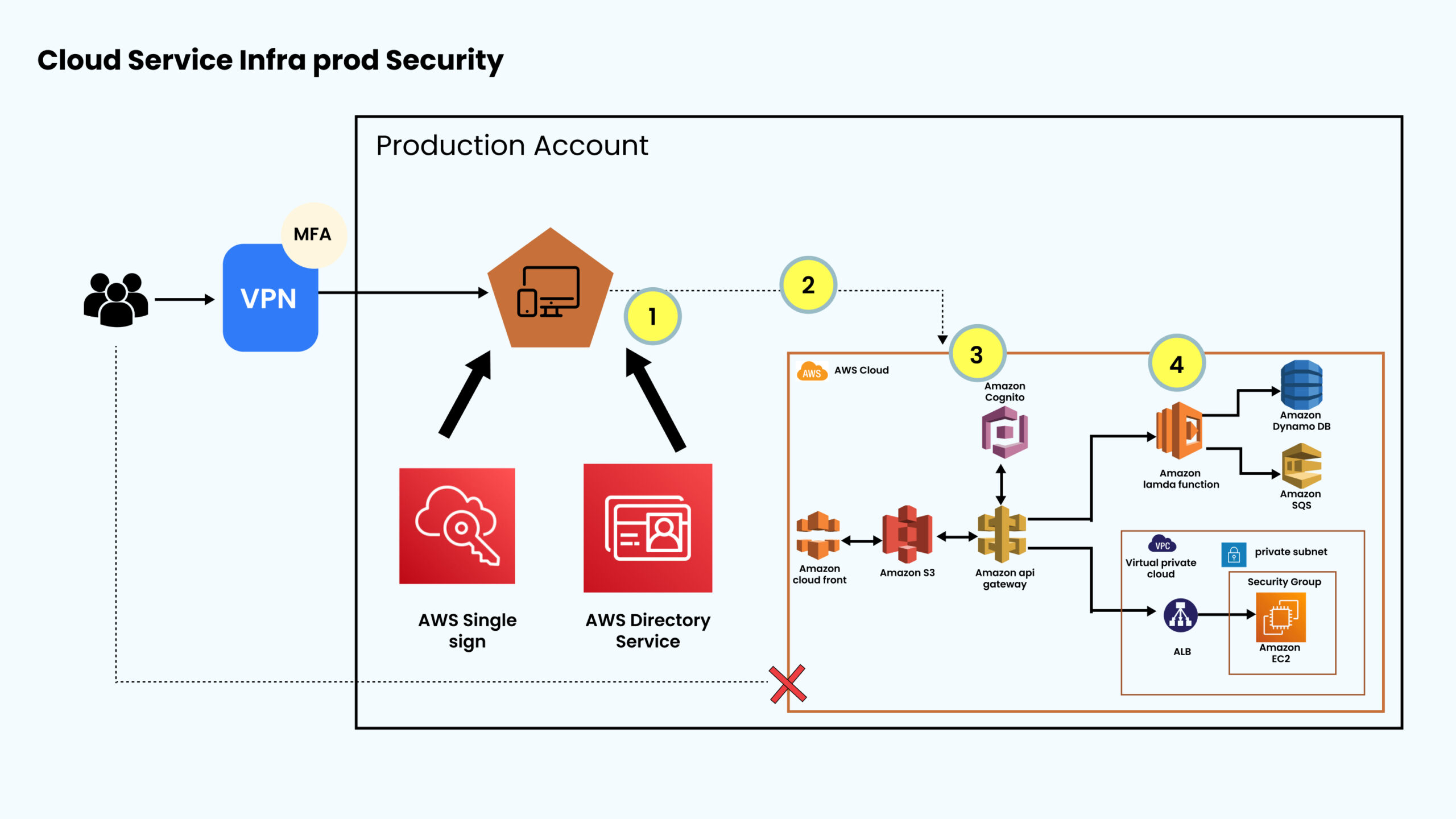Cloud computing has become an increasingly popular choice for companies trying to grow their IT infrastructure, thus AWS security is a crucial item to think about. One of the most popular cloud platforms, AWS offers a variety of services that assist companies in growing and operating more effectively. But along with cloud computing’s advantages come possible security threats.
The security of their data and applications, adherence to industry standards, and protection against data breaches are all requirements for organizations using AWS. Although Amazon offers the infrastructure and resources required for secure cloud computing, users are still responsible for following security best practices to protect their data and applications.
Moreover, data breaches can seriously harm an organization’s finances and reputation. A data breach may result in the loss of sensitive information, such as customer and financial data, which may have legal and regulatory repercussions, undermine customer trust, and result in substantial financial losses.
In order to protect their sensitive data, ensure compliance with industry rules, and keep their customers’ trust, enterprises that use AWS must take AWS security seriously. Organizations can lower the risk of data breaches, adhere to industry laws, and operate in a secure cloud environment by using Amazon security best practices and tactics.
The Impact of AWS Security on Businesses
For businesses, AWS security is essential since it has an impact on their daily operations, public perception, and financial stability. A data breach can have a variety of detrimental effects on an organization, including:
1. Financial Losses
A data breach may cause a corporation to suffer serious financial losses. Companies may have expenses for the investigation of the breach, the implementation of security measures to stop such breaches, and paying compensation to consumers who were impacted.
2. Reputational Damage
A data breach may cause reputational damage to a company. If a company’s data is compromised, it may be difficult to win back the faith and confidence of its customers.
3. Legal and Regulatory Consequences
Businesses may face legal and regulatory repercussions as a result of data breaches. Businesses that violate industry rules pertaining to data privacy may occasionally be subject to fines or penalties.
4. Operational Disruption
The operations of a company might potentially be affected by a data breach. A company’s capacity to run efficiently may be impacted by the loss or theft of critical data, which could lead to downtime and lost production.
As a result, Amazon security is a crucial component of corporate operations, and companies must take precautions to safeguard their data and cloud-based applications. Businesses can guarantee that their sensitive data is safeguarded, adhere to industry standards, and keep consumers’ faith and confidence by using AWS security best practices and policies.
Why Should You be Concerned as a Business?
Because Amazon security directly affects sensitive data and information, your customers would be concerned. When your business utilizes Amazon, you can keep sensitive data on AWS servers, including financial and customer data. This information may be lost, taken, or compromised in the event of a data breach, putting your business at risk of fraud, identity theft, and other potential harm.
Consumers depend on businesses to protect their personal information and data, and a data breach can cause them to lose faith in the business. When a company experiences a data breach, customers may be reluctant to do business with them and may look for substitute providers they believe to be safer.
In addition, some sectors, including healthcare and banking, are governed by stringent data privacy laws. Under these circumstances, a data breach can have serious legal and regulatory repercussions for the business, which may eventually have an effect on the customer.
You as a business should be concerned about AWS security because it may affect the protection of your personal information, result in a decline in customer confidence in the company, and may have legal and regulatory repercussions. You should check to see if the companies you do business with take AWS security seriously and take the required security precautions to safeguard sensitive data and information.
Understand the Shared Responsibility Model
One of the fundamental principles of AWS security is the Shared Responsibility Model. According to this model, AWS is responsible for the security of the cloud, while customers are responsible for the security of their data and applications within the cloud. This means that while AWS provides the infrastructure and tools necessary for secure cloud computing, customers must implement security best practices to ensure that their data and applications are secure.
How AWS Security Benefits Businesses from the Perspectives of Cost, Reputation, and Marketability
AWS security benefits businesses from cost, reputation, and marketability points of view in the following ways:
1. Cost savings
By lowering the risk of data breaches and the related costs, such as penalties, legal fees, and lost income due to downtime, implementing Amazon security best practices can help businesses save money.
2. Enhanced Reputation
By highlighting a dedication to safeguarding customer data and information, a company’s attention on AWS security can improve its reputation. Customers and other stakeholders may become more trusting and confident as a result, increasing customer loyalty and retention.
3. Improved Marketability
Companies can get a competitive edge in the market by prioritizing AWS security. They may stand out from rivals and draw in new clients that appreciate security and data protection by emphasizing their security procedures and their dedication to preserving consumer data.
4. Regulatory Compliance
Using AWS security best practices can assist businesses in adhering to the stringent data protection standards that apply to many different industries. This could avoid fines and other penalties that could arise from non-compliance in the past.
5. Increased Efficiency
Through the early detection of potential security concerns, AWS security features like automated security checks and threat detection can help businesses run more effectively. Businesses can focus on other parts of their operations as a result of the time and resource savings.
Overall, giving AWS security priority can help businesses save money, improve their reputation, become more competitive, comply with regulations, and operate more effectively. Businesses can safeguard their sensitive data and information, increase trust with clients and stakeholders, and work more productively in a secure cloud environment by putting Amazon security best practices into practice.
Conclusion
For businesses employing cloud computing to develop their IT infrastructure, AWS security is essential. Organizations may guarantee the security of their data and applications, lower the risk of data breaches, and adhere to industry laws by putting these best practices and initiatives into operation. A safe Amazon environment requires you to establish IAM, understand the Shared Responsibility Model, encrypt data, use MFA, monitor your environment, and routinely back up your data. If you are looking for a technology partner for trusted AWS Cloud service, get in touch today.






